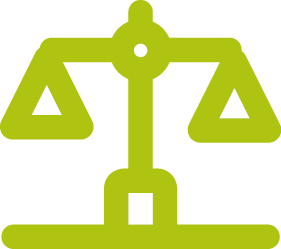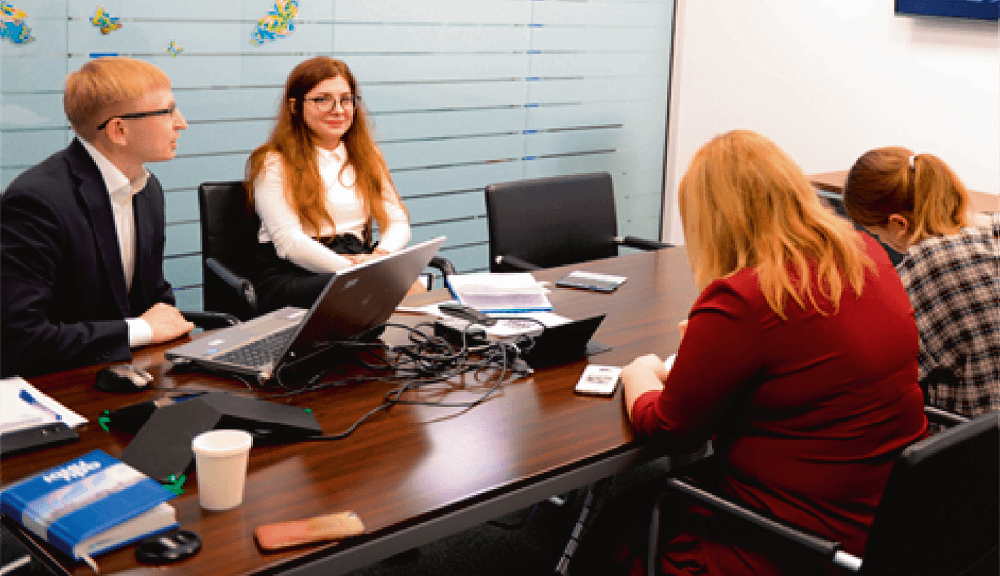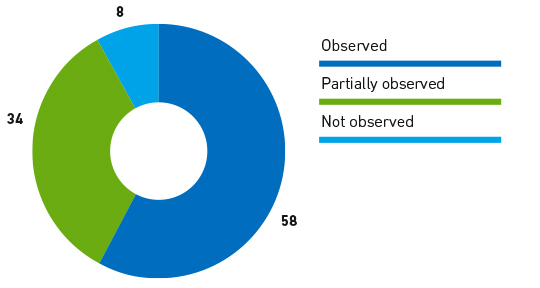2.1. Corporate Governance Practices
the Director
for Corporate
Management, Legal
and Property Issues

How does corporate management affect the investment appeal of Unipro PJSC?
In essence, corporate management is among the primary tools of communication with investors. On the one hand, we show how Unipro PJSC takes the best management practices into account and builds efficient processes. On the other hand, we demonstrate the Company’s current performance, plans and potential to investors. This is why the factors affecting our investment appeal include the performance of the corporate management system.
Our shareholders take part in the management of the Company to the extent they are authorised to do so by corporate law. In the meantime, we are maintaining an ongoing open dialogue with them and trying not to limit ourselves to formal approaches. Instead, we strive to report additional indicators to them as evidence that we are serving their best interests. Ultimately, information transparency pushes up the liquidity of securities.
Please tell us about the Company’s benchmarks and key results secured in 2018 as they regard improvements in the management system.
Russian corporate law is continuously improving. As we adjust our activities to the changes in corporate regulation and new requirements of the market, we are striving to adapt our Company bylaws pursuant to the most recent recommendations of the Central Bank of Russia and the effective Listing Rules of the Moscow Exchange. To that end, we revised the Company’s Articles of Association, Code of Corporate Governance, Regulation on the Insider Information and other bylaws in the reference period.
Furthermore, one of our shareholders — international gas and energy group Uniper — has very strong positions in the European market and obviously has high corporate management standards. We are watching the evolution of this function in the group closely, and unless this comes in conflict with Russian corporate law, borrow individual best practices.
In my opinion, developing the new dividend policy that received final approval in March 2019 was among the key corporate management successes. The document has become more transparent in terms of dividend payout plans and our shareholders are now able to forecast the performance of their investments.
Unipro PJSC is one of the leading public joint stock companies in Russia by the number of minority shareholders. What are the challenges that this situation poses to the corporate management system and how does the Company address them?
Obviously, a company that has over 300,000 shareholders will have certain difficulties. They are predominantly due to the fact that a large number of our minority shareholders are senior citizens who have limited access to means of electronic communication. This engenders certain problems concerning the timely entry of changes in the register system (shareholders’ passport data, postal addresses and other details) and shareholders’ ability to receive the notices of our General Shareholders’ Meeting. These little things that may seem trivial at first sight affect our shareholders’ ability to enjoy their rights in full.
We give special attention to this issue, notify our shareholders of the procedure for contacting the registrar and of the need to enter changes in the personal data on a regular basis. We have a strong respect for all the shareholders of the Company. We never disregard a single letter we receive from them, even if they concern minor administrative matters that should be sent to the registrar. Given all the peculiarities of communication, we try to work with each and every shareholder individually and we can already see the fruits of these efforts.
At year-end 2018, the legal risks were recognised as material. What methods did the Company use to counter these risks?
The fact that the Company has recognised the legal risks as material is strong evidence of Unipro PJSC’s transparency. We openly announce our risks, why they are material and inform on preventive measures. As far as the methods to counter these risks are concerned, these are the methods provided by applicable law.
Legal risks associated with frequent changes in the law that governs the Company’s core business are of special significance for the Company. To that end, we reorganised the corporate and legal function in 2018 and created a separate department for regulatory affairs to provide the Company with systemic support when interfacing with regulators and the market on matters concerning new regulatory initiatives.








